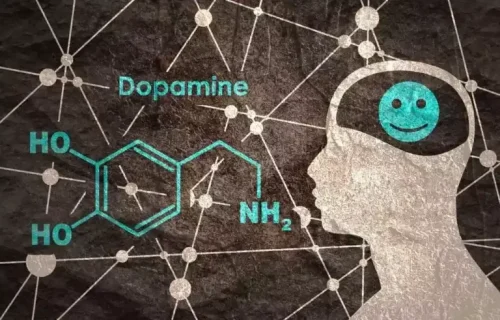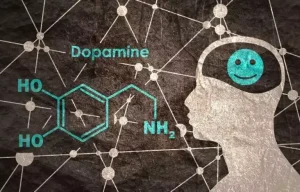
Supporting a person with alcohol-related ‘dementia’ can be challenging for their carer, friends and family. They will need different kinds of support, which may not always be easy to access. It is likely that a person will need a brain scan to rule out other causes of their symptoms. These include a stroke, a bleed caused by physical trauma, or a tumour. The doctor will also do a full physical examination and take a detailed history of the person’s symptoms and how they are affecting their life.

Alcohol and Cialis: Risks, Side Effects & Treatment
- People may also have motor difficulties due to impaired coordination and trouble walking, which can lead to safety concerns.
- The symptoms of alcohol-related ‘dementia’ can change a lot from person to person.
- While under the effects of alcohol they may fall and hit their head, or receive blows to the head in fights or as victims of violence.
- Quite a few studies do not properly distinguish between the two disorders in their investigation of the phenomena 2.
You may also get a brain scan to alcoholism symptoms rule out other potential conditions, like stroke, tumor, or a brain bleed caused by physical trauma. The symptoms of alcohol-related dementia and age-related dementia are fairly similar. Quitting suddenly (cold turkey) can cause withdrawal and complications like delirium tremens (DT). DT is a severe form of sudden alcohol withdrawal that’s a medical emergency.
Connection Between Alcohol & Brain Damage
- A doctor will ask a patient questions to determine whether their cognitive impairments result in disturbances to their daily functioning.
- Neither of these are actual types of dementia, because you cannot get better from dementia, and there is some chance of recovery in both of these conditions.
- A diagnosis of dementia requires a comprehensive physical and psychological evaluation.
- It is important to rule out other causes of cognitive decline, such as Alzheimer’s disease, vascular dementia, or other neurological conditions.
Many of the deficits caused by brain atrophy are similar to those seen in is alcoholic dementia real alcoholic dementia. Besides having the patient stop drinking, start taking medication, and start participating in therapy and counseling, recognizing the signs of alcoholic dementia is the first step in managing alcohol-related dementia. Treatment typically involves the use of thiamine supplements in oral or injected forms.

What is the life expectancy for someone with alcohol-related dementia?
They may also need to live in assisted living housing if their symptoms are severe. In cases where they suspect Korsakoff syndrome, a doctor will likely recommend long-term use of thiamine, possibly combined with other vitamins and magnesium. Abstinence of up to one year is linked with improved attention, working memory, and problem-solving abilities. However, learning and short-term memory impairments may be more difficult to reverse even with abstinence.
- In spite of this high mortality, and although both DT and AIP have been described as risk factors for mortality in people with AUD 22, to our knowledge, no studies have compared mortality in DT versus AIP.
- Addressing alcohol-related dementia involves early intervention, managing alcohol intake, and providing supportive treatments to mitigate the progression of dementia.
- Symptoms tend to develop gradually and worsen over time if you continue drinking.
- A person who has ARBD won’t only have problems caused by damage to their brain.
- Instead, it can vary based on individual factors, such as genetics and the pattern of drinking.
- People in stage two may have difficulties concentrating or making decisions, which can impact daily life.In stage two, people with alcohol-related dementia often need professional help to complete daily tasks.
If you experience both Wernicke’s encephalopathy and Korsakoff’s syndrome at once, it’s called Wernicke-Korsakoff Syndrome (WKS). The symptoms of Wernicke’s encephalopathy can be different from person to person. If you’re concerned about yourself or someone else, talk to your doctor.
The relationship of Wernicke-Korsakoff syndrome to alcohol-related dementia: pathophysiology
The length of rehab can vary widely depending on each individual’s progress and needs. Some programs last 30 days, while others may continue for 60 or 90 days or more. In the context of alcohol-related dementia, longer-term programs may be beneficial, as cognitive improvements and the establishment of healthy routines can take time.


The kind of drinking that causes alcohol-related dementia is different from an occasional cocktail, beer or glass of wine. The American Medical Association recommends that males have no more than two standard-sized drinks per day, and no more than 14 in a week. Females should have no more than one standard-sized drink a day, and seven or fewer drinks each week. The damage that causes alcohol-related dementia happens after years of unsafe drinking.
Cross-Sectional Studies on Alcohol-Related Brain Injury
Memory and decision-making are also severely affected, which means that people living with this condition need help from trusted family or friends to manage home, finances, transportation, and more. If you or a loved one is living with AUD, it can be challenging to stop drinking. Alcohol withdrawal can be dangerous if you abruptly stop drinking after consuming large amounts of alcohol for a long time. Therapy for alcohol-related dementia can include management of AUD, nutritional supplementation to compensate for nutrient deficiencies, and exercises to help improve cognition (thinking abilities) and motor skills.
